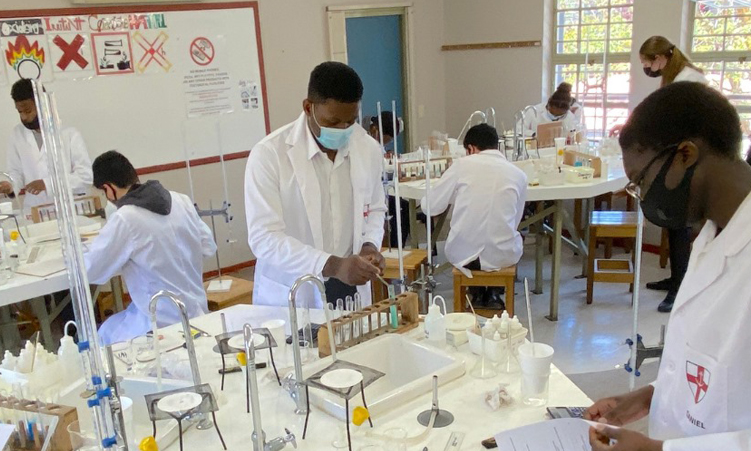The debate about whether science should be taught in Namibian languages at schools and universities rages on.
There is a lack of scientific words in Namibian languages. This is due to the fact that science is not part of the indigenous Namibian cultures, nor African cultures at large.
Under the Bantu education system, Namibians were taught in Afrikaans as a medium of instruction. When the government of Namibia took over in 1990, it adopted a policy, stating that grades 1 to 3 will be taught either through their home language, a local language, or English.
In addition, it stated that from grades 4 to 12, the medium of instruction should be English.
It further states that each pupil should study two languages – a mother language, or predominant language, and English.
Languages are just like human beings in the sense that they lack some components.
It could be argued that Namibian languages can borrow words from European languages.
Another method to create scientific words in Namibian languages is through translation, by applying ‘foreignisation and domestication’ as narrated by Shatepa and Shikesho (2019).
In addition, we can create scientific words through other alternative methods, such as using our senses.
A good example to look at is the current situation of Namibians studying and taking learners and driving licence tests in their local languages, for example, Oshikwanyama.
Another example to consider is the current situation of mother tongue medium of instruction from grades 1 to 3, involving that pupils learn science subjects in their mother tongue.
Moving forward, the expectation is that changing the medium of instruction from English to mother tongues throughout the school phases would come with challenges, such as a lack of teaching and learning aids.
However, one could postulate that teachers are trained to be creative, rather than being text-book bound.
I hope there will be authors who will write books in their areas of specialisation or get copyright from publishers and authors to translate existing teaching and learning materials in various Namibian languages.
Learning science in our vernaculars would have several other advantages, such as boosting the vocabulary of our languages.
Additionally, it would ensure inclusion and quality teaching and learning.
Furthermore, it would avoid knowledge gaps and increase comprehension, which would result in improved academic performance.
It would increase pupils’ critical thinking, and they would enjoy learning through their mother tongue.
Moreover, parents would be more likely to communicate with teachers and participate in their children’s learning.
Taking everything into consideration, it is worth concluding with a quote by Toffler, who said: “The illiterate of the 21st century will not be those who cannot read and write, but those who cannot learn and relearn.”
Are we Namibians only good at translating the Bible and laws in our local languages?
Over to you, Namibians!
Johannes Shifela
Stay informed with The Namibian – your source for credible journalism. Get in-depth reporting and opinions for
only N$85 a month. Invest in journalism, invest in democracy –
Subscribe Now!






